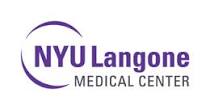Early Independent Adaptive Arm and Hand Rehab
| Status: | Completed |
|---|---|
| Conditions: | Neurology |
| Therapuetic Areas: | Neurology |
| Healthy: | No |
| Age Range: | 18 - 90 |
| Updated: | 3/27/2019 |
| Start Date: | June 1, 2017 |
| End Date: | January 19, 2019 |
Early Independent Adaptive Arm and Hand Rehabilitation Post Stroke
The purpose of this study is to test the hypothesis that early independent adaptive
bimanual-to-unimanual training of arm and hand movements, assisted with specially designed
mechanical devices: the mirrored motion bimanual arm trainer (m2 BAT), will improve motor
control and function in patients with post-stroke hemiparesis.
bimanual-to-unimanual training of arm and hand movements, assisted with specially designed
mechanical devices: the mirrored motion bimanual arm trainer (m2 BAT), will improve motor
control and function in patients with post-stroke hemiparesis.
This study will randomly assign individuals admitted to the inpatient stroke rehabilitation
unit to receive either conventional occupational therapy (OT) or conventional OT plus 1 hour
additional bimanual-to-unimanual device-assisted therapy.
unit to receive either conventional occupational therapy (OT) or conventional OT plus 1 hour
additional bimanual-to-unimanual device-assisted therapy.
Inclusion Criteria:
- Ability to follow study instructions
- Ability to likely complete all required visits
- Ability to comply with the therapy protocol as assessed by the investigator
- Must be English speaking
- Subjects must have had a unilateral stroke
Exclusion Criteria:
- Severe upper extremity spasticity suggested by an Ashworth score of ≥3 at any joint,
or restriction of full passive range of motion.
- Evidence of alcohol, drug abuse or other relevant neuropsychiatric condition such as
psychotic illness or severe depression.
- Any condition or situation that, in the investigator's opinion, may put the subject at
significant risk, confound the study results, or interfere significantly with the
subject's participation in the study.
- History of surgery or other significant injury to either upper extremity causing
mechanical limitations that preclude task performance.
- Previous neurological illness such as head trauma, prior stroke, epilepsy, or
demyelinating disease.
- Complicating medical problems such as uncontrolled hypertension, diabetes with signs
of polyneuropathy, severe renal, cardiac or pulmonary disease, or evidence of other
concurrent neurologic or orthopedic conditions precluding the subject from complying
with the study protocol.
- Patients who are cognitively impaired.
- Patients who lack capacity to consent.
We found this trial at
1
site
550 1st Ave
New York, New York 10016
New York, New York 10016
(212) 263-7300

Principal Investigator: Maria Tafurt, MD
New York University Langone Medical Center NYU NYU Langone Medical Center, a world-class, patient-centered, integrated,...
Click here to add this to my saved trials